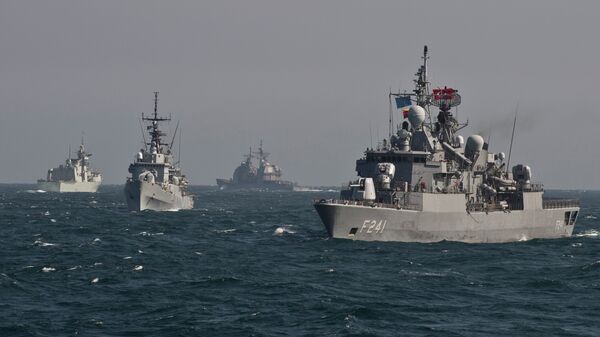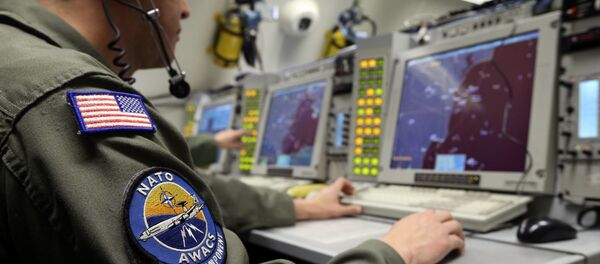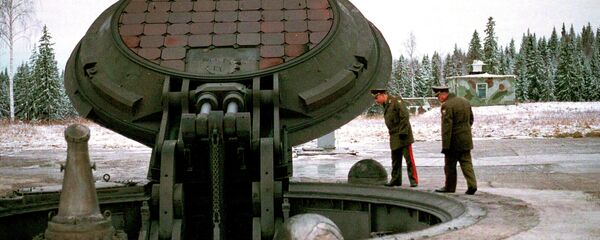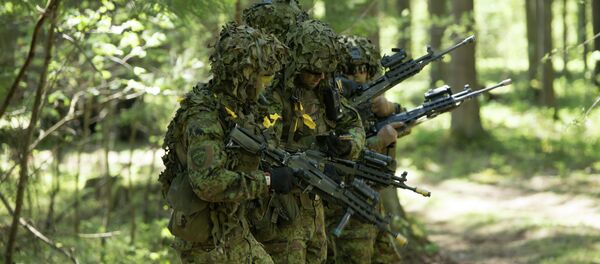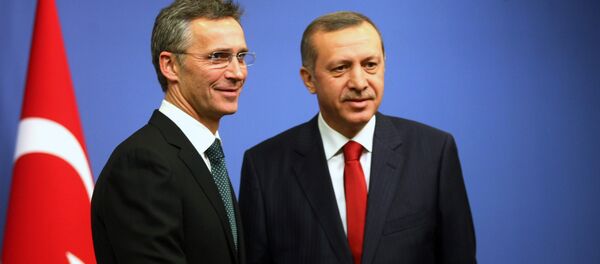The buildup, the official added, would include increased air and naval patrols, increased exercises, and "more boots on the ground with more exercises and troops," together amounting to "the most significant boost to our collective defense since the end of the Cold War."
Commenting on the new NATO buildup for Russian news agency RIA Novosti, Retired Col. Gen. Leonid Ivashov, the president of the Academy of Geopolitical Affairs, said that NATO's expansion is entirely in line with Washington's national security strategy, which names Russia as the primary obstacle to the preservation of a unipolar world led by the United States.
"We need to start from the national security strategy and military doctrine of the United States, adopted in 2015," Ivashov suggested. "There Washington set the vector for the actions of all of its satellites and allies, and declared that there would be no multipolar world. Banking on military power to consolidate the existing world order, [the strategy also] announced Russia to be the main enemy and a threat to the entire world."
"If we take a look at the geography of the NATO effort to strengthen its military capabilities, everything starts in the Arctic. As soon as it became clear that Russia was restoring its capabilities in the region, Washington began shouting that 'Moscow is trying to take over the Arctic and the Northern Sea Route' [which stretches through Russia's north]. Serious military preparations are now underway by the US, Canada and Norway."
Similar trends, Col. Gen. Ivashov said, can be observed in the Baltic states and Poland, where new military installations and bases are being created, and in other countries, in which the US is actively stockpiling forces and weaponry, including nuclear weapons.
"Add to this support for Ukraine and Turkey, and we get a strategy against Russia aimed at drawing our country into an armed confrontation – into a major war, including information warfare. Even those measures Russia is taking simply to ensure its own security are called aggression," the military analyst noted.
In this situation, Ivashov believes, Russia must prepare a comprehensive defense – one which appeals to more than just the military component.
"We need to step up our political and diplomatic activities, to use the mechanism of the UN Security Council, the OSCE and other regional organizations, and to search for allies in China and India; after all, if Washington manages to 'deal with' Russia, these powers will be next on the list," he concluded.
NATO's Buildup Could Untie Erdogan's Hands
NATO's Eastern European buildup and the strengthening of the alliance's presence in the eastern Mediterranean and the Black Sea could serve as a dangerous stimulus for Turkish aggression, according to Retired Naval Captain First Rank Mikhail Nenashev.
Speaking to RIA Novosti, Nenashev warned that "if we are speaking of the Mediterranean and Black Sea region, [NATO's efforts] will encourage more brazenly aggressive behavior by the current Turkish leadership. It's enough to recall the former Georgian authorities' attack on Ossetia [in 2008], which was possible because the Americans had made clear, by their presence in the Black Sea, that they would understand and support this action."
In 2008, the now disgraced former Georgian President Mikheil Saakashvili launched an invasion of the breakaway regions of South Ossetia and Abkhazia, killing Russian peacekeepers in the process and prompting a Russian response.
In actuality, the expert said, "all of these statements are made not out of a sense of strength, but out of a sense of weakness – out of the understanding that in Russia and China, no one fears this attempt to instill hysteria."
"Unfortunately," he added, "Washington and its satellites in NATO are engaged in the invention of imaginary threats, instead of helping Russia to destroy the main threat – the expansion of Islamist terrorism."
This, Nenashev warns, is "comparable to the situation ahead of the Second World War, when it was obvious that the real threat came from Nazi Germany, but Western countries, including the US, attempted to present our country as the main threat to world peace."
At the same time, he said, "with regard to the provision of additional ships to the Black Sea NATO countries (Bulgaria, Romania, Turkey) to bypass Montreux, this is unlikely, because the Balkan countries do not have the sufficient maritime specialists to service ships with sophisticated anti-missile systems, and Ankara's relationship with the alliance is too unstable, ranging from friendship to enmity."
